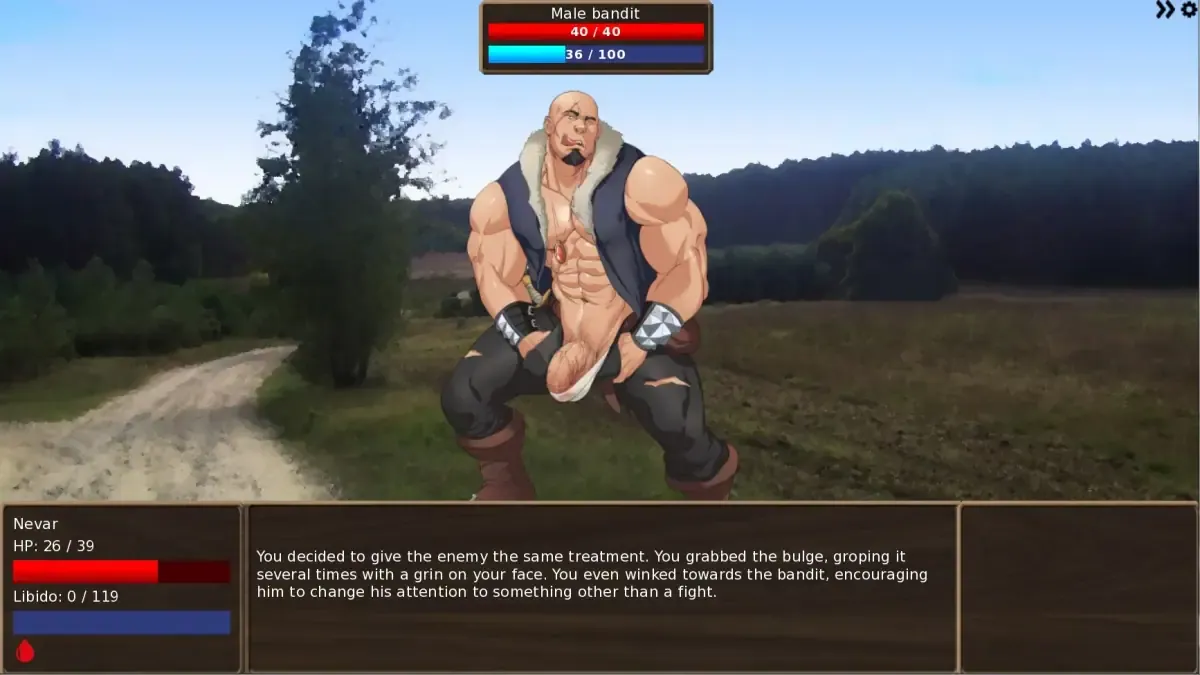
Apocalust
Play Apocalust
Apocalust review
A comprehensive guide to understanding the adult gaming experience and what makes this title unique
Apocalust stands out in the adult gaming landscape as a title that combines narrative elements with character-driven gameplay. This comprehensive guide explores what players can expect from the experience, examining the game’s design philosophy, character development systems, and the mechanics that define its appeal. Whether you’re curious about the gameplay loop, interested in understanding the character interactions, or seeking insight into what makes this title resonate with its audience, this article breaks down the essential aspects of the Apocalust experience and helps you understand its place in the broader gaming ecosystem.
Understanding Apocalust: Core Gameplay and Design Philosophy
What Defines the Apocalust Experience? 🤔
Let’s be honest, when you first hear about an adult game, you probably have a certain… expectation. You might imagine a simple, click-through visual novel with minimal interaction. I know I did. But booting up Apocalust for the first time was a genuine surprise. It’s less like a typical adult game and more like a deeply immersive, story-driven RPG where the characters and their relationships just happen to be the central focus. The core Apocalust gameplay mechanics are built on a foundation of meaningful choice and consequence, creating a experience that feels personal and reactive.
So, how does Apocalust gameplay work at its most basic level? Think of it as a delicate dance. You explore a beautifully rendered, post-calamity world, interact with a cast of survivors, and make decisions in dialogue and action. These choices aren’t just about picking the “romantic” option; they’re about defining your character’s personality, aligning with certain factions, and managing scarce resources. The game brilliantly intertwines survival elements with social simulation. Helping a character gather supplies one day might unlock a more vulnerable, intimate conversation with them later. It’s this cause-and-effect loop that forms the heart of the experience.
The magic of Apocalust isn’t in any single feature, but in how all its systems talk to each other. The game event system design ensures that your journey is never static. Random encounters, character-driven side quests, and major story beats are triggered based on your reputation, relationships, and even the time of day. I remember once ignoring a minor character’s request for help, thinking it was inconsequential. Hours later, that same character refused to vouch for me during a critical tribunal scene, completely altering the story’s path. It’s this web of interconnected systems that makes the world feel alive and your actions truly matter. 🌍✨
Character Design and Development Systems 🎭
If the world of Apocalust is the stage, then the characters are undoubtedly the stars. The adult game character design here is a masterclass in depth and authenticity. These aren’t just archetypes with exaggerated features; they are flawed, complex individuals shaped by a broken world. The visual design tells a story all on its own—scars hint at past struggles, worn clothing reflects their daily hardships, and subtle animations, like a character nervously fidgeting, sell their personality before they even speak.
The real genius lies in the character relationship mechanics. Your bonds with other survivors are not measured by a simple “affection meter.” Instead, the game tracks a multi-faceted relationship score that includes trust, respect, desire, and conflict. Building a meaningful connection requires more than just giving gifts or saying the right thing. You have to demonstrate consistent values, keep your promises, and sometimes, make difficult choices that prioritize one character’s wellbeing over another’s. It’s frustrating, heartwarming, and deeply human.
Pro Tip: Pay close attention to character-specific dialogue triggers. Mentioning a past conversation or remembering a small detail they shared can massively boost your trust score with them.
Let’s walk through a typical interaction to see these mechanics in action. Imagine you’re interacting with Maya, a pragmatic scavenger who values self-reliance.
- You find Maya arguing with another survivor over ration distribution.
- The game presents you with three choices:
- Side with Maya: “She’s right, we need to be stricter with supplies.” (Increases Maya’s Respect, decreases standing with the other character)
- Mediate the conflict: “Let’s find a compromise that works for everyone.” (A small boost to Trust with both, but may be seen as weak by Maya)
- Ignore the situation: Walk away and focus on your own tasks. (Decreases Trust with both characters, as you showed a lack of community spirit)
I chose to mediate, which initially made Maya a little cold towards me. However, later that day, I had the option to share some of my personal food stash with her, an action that aligned with the “compromise” value I had previously demonstrated. This single act repaired the damage and opened up a new, more personal conversation branch that wouldn’t have been available otherwise. This fluid, organic flow is what makes the Apocalust gameplay mechanics so compelling.
The development doesn’t stop at relationships. Each character has their own skill trees and personal quests that you can influence and assist with, further tying their growth directly to your Apocalust game progression system.
Narrative Structure and Player Progression 📈
The Apocalust narrative structure is anything but linear. Instead of a straight path from A to B, the game presents you with a “narrative web.” The core plot—surviving in a dangerous new world and uncovering the mystery of the calamity—remains constant, but how you experience it, and with whom, is entirely up to you. Major story arcs are gated behind your relationships and key decisions, meaning two players can have wildly different tales to tell.
Your journey through this web is guided by the brilliant Apocalust game progression system. Progression isn’t just about leveling up a character; it’s about advancing the storylines you care about. The system tracks multiple parallel threads:
- Faction Standing: Your reputation with major groups in the world.
- Character Arcs: The completion percentage of each main character’s personal story.
- World State: How your actions have altered the hub world (e.g., improved defenses, discovered secrets).
This multi-layered approach means you’re always working towards something meaningful. Unlocking a new scene with a character feels like a genuine achievement, earned through careful attention and consistent role-playing.
The game event system design is the engine that drives this progression forward. Events are not random; they are carefully curated moments that test your established relationships and values. You might be forced to choose which character to save in a crisis, or your romantic partner might confront you about your secret dealings with another faction. These high-stakes moments are where the game’s mature themes truly shine, balancing intense character moments with the overarching plot. The explicit content is never gratuitous; it’s treated as a narrative payoff, a moment of vulnerability and intimacy that feels earned by the journey you and the character have shared. ❤️🔥
The game has evolved significantly since its initial release, with developer updates continually refining the experience based on community feedback. The table below shows how Apocalust has grown over time.
| Version | Release Date | Major Feature Additions |
|---|---|---|
| 1.0 | Initial Launch | Core story chapters 1-3, base character relationship mechanics, initial hub world. |
| 1.5 ‘Binding Ties’ | First Major Update | Introduced the multi-faceted relationship score (Trust, Respect, etc.), added two new companion characters, expanded the game event system with dynamic encounters. |
| 2.0 ‘Factions’ | Content Overhaul | Added the Faction Standing system, a completely new desert region to explore, and deeply integrated faction choices into the main narrative. |
| 2.5 ‘Echoes of the Past’ | Narrative Expansion | Added extensive backstory quests for all main characters, introduced “Memory” sequences, and refined the UI for tracking the Apocalust game progression system. |
This commitment to post-launch support has kept the community engaged and has allowed the Apocalust narrative structure to become more complex and rewarding with each update. Understanding how does Apocalust gameplay work is to understand this synergy between a living world, deep character relationship mechanics, and a story that respects your intelligence and agency. It’s not just about playing a game; it’s about co-authoring a personal, memorable story in a captivating world. 🏆
Apocalust represents a specific approach to adult gaming that prioritizes character interaction and narrative progression alongside its explicit content. The game’s design philosophy centers on creating meaningful character relationships through a progression system that rewards player engagement and choice-making. Understanding the core mechanics—from character development to narrative branching—provides insight into why the title has developed a dedicated player base. The balance between storytelling elements and adult content creates an experience that appeals to players seeking more than surface-level engagement. For those interested in exploring this genre of gaming, Apocalust demonstrates how thoughtful design and character focus can elevate the overall experience. Whether you’re evaluating the game for personal interest or researching the adult gaming landscape, recognizing these design elements helps contextualize what the title offers within the broader gaming community.




















